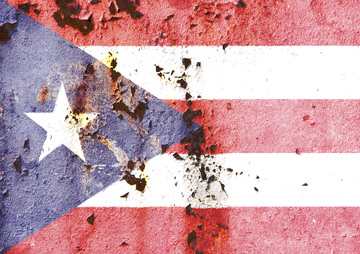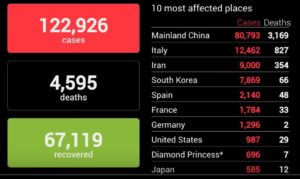If You Think What the EU Is Doing to Greece Is Bad, Look at What the U.S. Is Doing to Puerto Rico
The scenario playing out in Puerto Rico sure does feel like déjà vu, with one terrifying difference. Shutterstock
Shutterstock
Shutterstock
The scenario playing out in Puerto Rico sure does feel like déjà vu, with one terrifying difference.
From Fusion Magazine:
The eyes of the world are trained on Greece, this week, as it teeters on the brink of disaster. Which perhaps helps to explain Alejandro García Padilla’s timing: the Puerto Rico governor chose Monday to announce that the island territory is insolvent, and cannot (will not) pay back its $72 billion in debt. Not on time and in full, in any case…Puerto Rico, like Greece, is the poor southern cousin of a politically-motivated monetary union which was not designed with such populations in mind. Like Greece, it is burdened with a massive debt it can’t realistically pay back. Like Greece, it is therefore going to default. And like Greece, that default is going to prove extraordinarily painful, in large part because of the constraints being imposed from the north.
The big question in Puerto Rico is what’s going to happen to its debt. Various different Puerto Rico government agencies have in total borrowed more than $70 billion from investors, mostly individuals in the United States who own municipal bond funds. Once Puerto Rico stops paying those creditors, they (or their bond insurers) will head straight to court to get their money back.
That will set up a zero-sum fight between the debtor and the creditors, just like any other default situation. But Puerto Rico’s case is different from most other debt defaults. After all, debtors generally have some protections. Most bankruptcy laws, for instance, protect debtors’ assets and incomes from being seized, at least temporarily. And in the case of sovereign nations like Greece, it’s almost impossible for any court, foreign or domestic, to force the country to pay monies it doesn’t want to pay.
Puerto Rico, by contrast, is stuck in the worst of all worlds. It has to abide by the rulings of New York courts, should bondholders file suit. And at the same time, it’s not allowed to file for — and receive the protections of — bankruptcy. (US municipalities, like Detroit, can file under Chapter 9 of the American bankruptcy code; Puerto Rico, which is a territory, cannot.) As a result, Puerto Rico is at the mercy of the courts, which will take one look at the island’s unambiguous bond contracts and declare that it has to pay its debts, in full…
Read more.
—Posted by Natasha Hakimi Zapata
Your support matters…Independent journalism is under threat and overshadowed by heavily funded mainstream media.
You can help level the playing field. Become a member.
Your tax-deductible contribution keeps us digging beneath the headlines to give you thought-provoking, investigative reporting and analysis that unearths what's really happening- without compromise.
Give today to support our courageous, independent journalists.






You need to be a supporter to comment.
There are currently no responses to this article.
Be the first to respond.